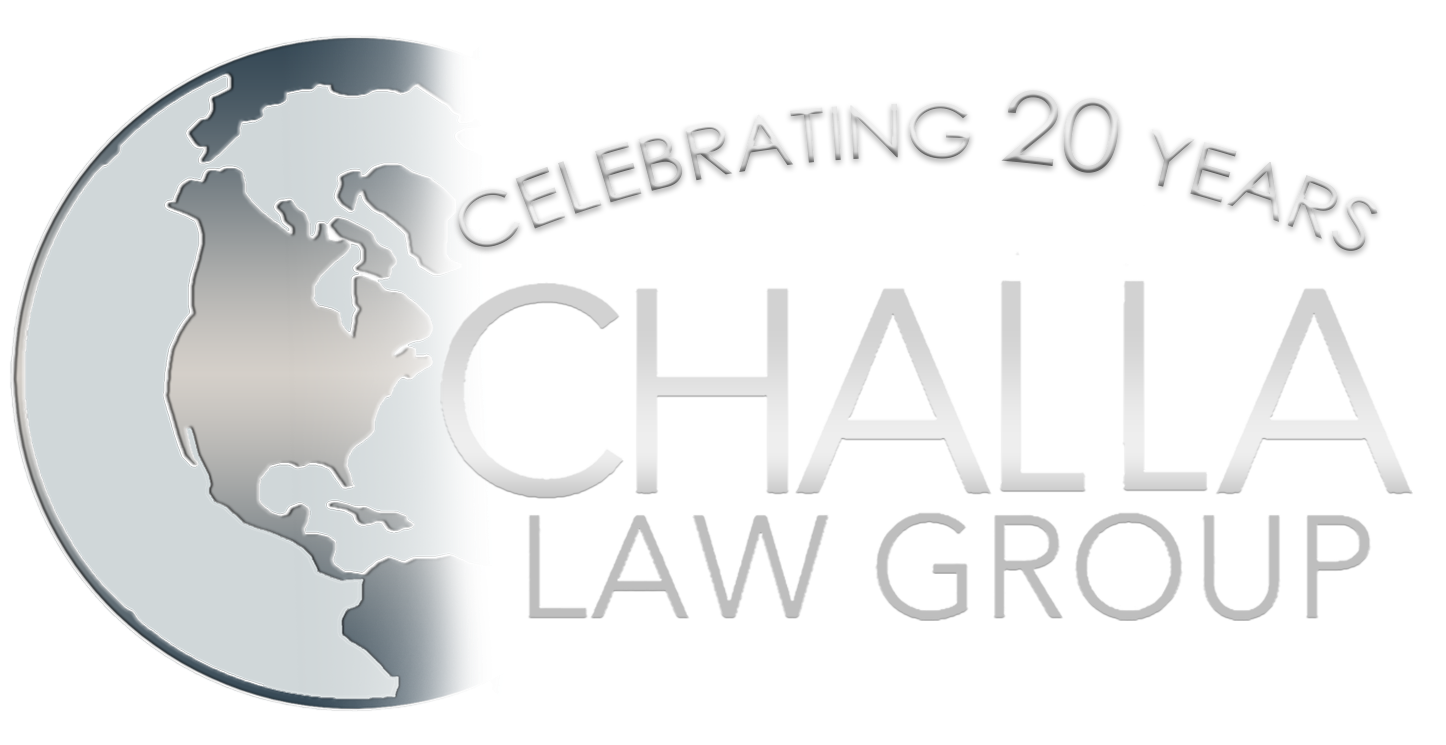Restrictions on Travel From India
Effective May 4, 2021, India was added to a list of countries with restrictions on entry to the United States. Other countries with restrictions include Brazil, China, Iran, Ireland, Schengen Area (Austria, Belgium, Czech Republic, Denmark, Estonia, Finland, France, Germany, Greece, Hungary, Iceland, Italy, Latvia, Liechtenstein, Lithuania, Luxembourg, Malta, Netherlands, Norway, Poland, Portugal, Slovakia, Slovenia, Spain, Sweden, and Switzerland), United Kingdom, and South Africa. Certain travelers physically present in these countries during the 14 days prior to their planned or attempted U.S. entry, are restricted from entering the U.S. The proclamation notes that India accounts for over one-third of new global cases and a variant strain is circulating throughout the country. The proclamation also stated that the CDC determined the variants have “characteristics of concern, which may make them more easily transmitted and have the potential for reduced protection afforded by some vaccines.”
Exceptions
Immigrants, U.S. citizens, and lawful permanent residents (LPRs) are not subject to the India travel ban proclamation. Other exceptions include:
- Spouses of U.S. citizens or lawful permanent residents
- Parents or legal guardians of U.S. citizen or lawful permanent resident (if the child is unmarried and under the age of 21)
- Siblings of U.S. citizens or lawful permanent resident (if they are both unmarried and under the age of 21)
- Children, foster children, or wards of U.S. citizens or lawful permanent residents
- Prospective adoptees seeking to enter U.S. under IR-4 or IH-4 visa classifications
- C-1, D, C-D crewmembers as air or sea crew
- Noncitizens traveling at the invitation of the U.S. government related to the containment or mitigation of the virus
- Members of U.S. Armed Forces and their spouses and children
- A-1, A-2, C-2, C-3 (as a foreign government official or immediate family member of an official), E-1 (as an employee of TECRO or TECO or the employee’s immediate family members), G-1, G-2, G-3, G-4, NATO-1 through NATO-4, or NATO-6 (or seeking to enter as a nonimmigrant in one of those NATO categories) or whose travel falls within the scope of section 11 of the United Nations Headquarters Agreement
National Interest Exceptions
The proclamation also gives authority to the Secretary of State, the Secretary of Homeland Security, or their designees to determine categories of noncitizens
- Immigrants (not applicable to the restrictions under Proclamation 10199, which only covers nonimmigrant travel)
- Fiancé(e)s
- Students and certain academics covered by exchange visitor programs. Students subject to these geographic COVID proclamations due to their presence in India, China, Iran, Brazil, or South Africa may qualify for a National Interest Exception only if their academic program, including optional practical training (OPT), begins August 1, 2021, or later. Students with valid F-1 and M-1 visas intending to begin or continue an academic program, including OPT, beginning August 1, 2021, or later do not need to contact an embassy or consulate to seek an individual National Interest Exception to travel. They may enter the United States no earlier than 30 days before the start of their academic studies. Students seeking to apply for new F-1 or M-1 visas should check the status of visa services at the nearest embassy or consulate; those applicants who are found to be otherwise qualified for an F-1 or M-1 visa will automatically be considered for a national interest exception to travel.
- Travelers who are seeking to provide vital support for critical infrastructure sectors or directly linked supply chains.
- Journalists
- Pilots and aircrew traveling to the United States for training or aircraft pickup, delivery, or maintenance, including individuals who are traveling to the United States on B-1/B-2, B-1, or M-1 visas, or Visa Waiver Program authorizations. This also includes certain M-2 dependents when the principal visa holder’s necessary training is four weeks or longer
- Certain exchange visitors, including some au pairs, specialized teachers, travel in support of critical foreign policy objectives, etc.
- Derivative family members accompanying or following to join a noncitizen who has been granted, would be reasonably expected to receive an NIE, or is otherwise not subject to the proclamations and who is engaging in certain types of long-term employment, studies, or research lasting four weeks or more
- Travelers seeking to enter the U.S. for purposes related to humanitarian travel, public health response, and national security.
International Travel Tips
The Department of State advises “Travelers in these categories who wish to visit the United States and have a valid visa in the appropriate class, or who are seeking to apply for a visa, and believe they may qualify for a national interest exception should contact the nearest U.S. embassy or consulate before traveling.” The DOS website also notes that the Secretary of State may revise the national interest determinations at any time.
- Limit nonessential international travel and consider postponing essential travel.
- If you absolutely must travel, check COVID-19 testing and quarantine requirements for each country on your itinerary. The U.S. requires a negative COVID-19 test within the 3 days prior to their inbound flight, but many countries require mandatory quarantines or prohibit entry if you have traveled through certain countries with restrictions.
- Check appointment availability and/or schedule your visa stamping appointment prior to departure. You should also consider the conditions where you are traveling. Some consulates and embassies can close or cancel appointments with no advance notice.
- Prepare for extended leave from the United States. Closures, additional travel restrictions, or lack of visa appointments could delay your return to the U.S. When you depart, consider that you could be stranded abroad for several months if conditions are unfavorable.
- Check the U.S. Embassy website for the latest COVID-19 information in India.
Many consulates are reporting no appointments available before October or November of this year. Some individuals whose appointments were scheduled for this spring now have additional scheduling delays of several months. If your request for an emergency appointment is rejected, you cannot attempt the request again, so be sure that the evidence you provide fully demonstrates your eligibility.
Already Have a Valid Visa?
The travel ban is a suspension of entry if you have been physically present in one of the affected countries in the past 14 days. If you have a valid visa and the ability to travel to a country not on the list and quarantine for 14 days, you would still be able to enter the U.S. on your valid visa. You would still have to comply with any local restrictions in the third country, as well as COVID-19 testing requirements for U.S. entry, so be sure to check that testing is widely available in the third country. You should also maintain careful records of your flights and accommodations to demonstrate you have not been in the affected countries in the 14 days prior to your entry or attempted entry into the U.S.
Don’t Have a Valid Visa and Need Visa Stamping?
Most consular posts have explicitly stated that visas will not be issued and/or appointments will not be scheduled unless the applicant also qualifies for a National Interest Exception. Each post has a different process for obtaining approval for the NIE, so check the consulate’s website to confirm the latest procedures. Since regular appointments are not readily available, you may also be required to prove your eligibility for an emergency appointment. If you qualify for a drop box appointment, you must still provide evidence of your NIE eligibility.
Related Topics & Resources:
Connecting with Challa Law Group
Join us on Wednesdays for a live webinar at 12 PM ET on critical immigration updates

Don’t miss out on the immigration news! You can sign up for our mailing list or follow us on Facebook, Twitter, Instagram, YouTube, or LinkedIn. You can also join our Telegram community.
Contact us at info@challalaw.com or 804-360-8482 to get your case started today.



